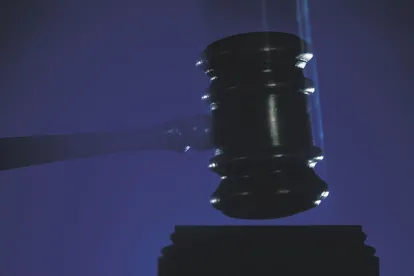On August 25, 2017, a federal judge for the U.S. District Court for the District of Georgia dismissed five payment processor defendants from a CFPB lawsuit, following what the Court described as the repeated failure by the Bureau to follow court discovery orders. In particular, the Bureau refused to provide factual evidence supporting the elements of its claims during Rule 30(b)(6) depositions, and made what the Court considered to be repeated unreasonable claims of privilege in response to defendant questions. The Court noted that “[t]he CFPB was particularly concerned about being asked to marshal its evidence and to link its allegations to the specific facts that support those allegations.” The dismissal adds to a growing number of setbacks the Bureau has experienced in enforcement-related litigation.
The underlying lawsuit is CFPB v. Universal Debt Solutions, LLC, et al., No. 15-CV-859. The Bureau filed the suit in 2015 against a number of entities it described as, collectively, “the ringleaders of a robo-call phantom debt collection operation, their companies, and their service providers.” The defendants included several payment processors whom the CFPB argued should be held liable because, among other things, they should have recognized that chargebacks connected with the scheme were suspicious and likely connected to fraud. The payment processor defendants allegedly provided substantial assistance to the debt-collection operation and engaged in UDAAP violations. In September 2015, the Court ruled in that the CFPB’s allegations were sufficient to state a claim against the payment processor and service providers defendants for providing substantial assistance to the scheme.
During the course of litigation, four payment processor defendants, as well as another “service provider” defendant, served the CFPB with Rule 30(b)(6) deposition notices, requiring the Bureau to produce a representative of the organization to answer defendants’ factual questions. Over the Bureau’s strenuous and repeated objections, the Court held that the depositions would go forward and a CFPB representative was required to answer questions about the facts underlying the elements of the CFPB’s allegations.
The representatives produced by the Bureau, however, read their answers off scripts “to deliver rote, sometimes, unresponsive answers,” and were unable or unwilling to respond to follow up questions outside the scripts. Further, the representatives claimed not to have discovered a single exculpatory fact in the course of the investigation, and repeatedly asserted work product privilege even following clarification from the Court that questions regarding the factual bases for allegations were not privileged.
The Court held that these actions violated its repeated discovery orders. It further held that these violations warranted the substantial sanction of dismissing the counts related to the defendants who conducted the depositions, stating that it did not believe a lesser sanction would be effective in remedying the Bureau’s action. Though the Bureau may appeal this matter, the sanctions constitute a striking rebuke to the Bureau and represents another in a series of recent litigation losses for the Bureau.




 />i
/>i

